
METC creates innovative training to graduate RT students
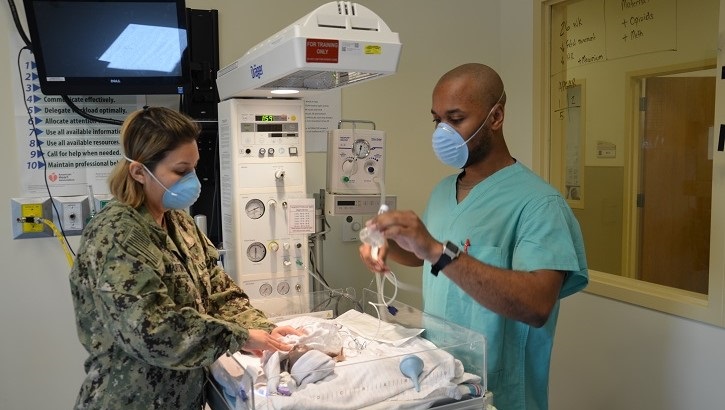
Navy Petty Officer 2nd Class Jawaun White, a phase 2 student and Navy Petty Officer 1st Class Gina Martinez, a phase 2 Instructor in the Medical Education and Training Campus (METC) Respiratory Therapist program prepare to fit a neonatal oxygen mask on an simulated infant in the Neonatal Intensive Care Unit. White and his classmates were completing the clinical portion of their training when the national COVID-19 response compelled medical facilities to postpone non-invasive and non-urgent procedures which impacted their ability to finish their clinical rotations. The class returned to their phase 1 training site at METC to complete the remainder of their clinical rotations in a simulated environment and graduated on May 7.
FORT SAM HOUSTON, Texas – Respiratory therapists (RT) the world over have been called to the frontlines in the battle against the novel coronavirus, known as SARS-CoV-2. Preparing to join the fight are 27 military respiratory therapist students who graduated training in early May.
The 32-week Army/Navy Consolidated Respiratory Therapist (RT) program is divided into two phases, and teaches students the skills necessary to function as competent respiratory therapists in critical care areas.
The first 16-week phase is the didactic portion conducted in the classroom and simulation laboratories at the Medical Education and Training Campus (METC) on Joint Base San Antonio-Fort Sam Houston, Texas. Training involves classroom instruction and hands-on practice in the program’s mock intensive care units (ICU) that utilize realistic, hi-fidelity manikins that simulate ICU patients. The manikins can be programmed to present a variety of vital signs and symptoms, as well as talk, cough, and make other sounds.
Phase 2 included clinical training at the Brook Army Medical Center where students apply their classroom and lab training in a variety of supervised clinical settings that involve hands-on patient contact. Students rotate between different departments to gain more in-depth experience and knowledge of respiratory issues, to include hospital wards, intensive care units, pulmonary function laboratory, pulmonary rehabilitation, and sleep laboratory.
It was toward the end of phase 2 clinical training for RT class 19-015 that medical facilities began to postpone non-invasive and non-urgent procedures in support of the national COVID-19 response.
Due to the COVID-19 impacts on numerous military treatment facilities, the Defense Health Agency enacted a policy to reduce medical and dental care across the Military Health System. This new policy had a direct impact on the students’ ability to complete their clinical rotations to graduate.
Like many educators who were compelled to think outside the box, the RT clinical instructors sought to create a workaround to this unique situation.
“The instructors wanted to ensure that training didn't cease during the COVID-19 pandemic,” stated Army Staff Sgt. Joshua Dixon, non-commissioned officer in charge of RT phase 2 clinical training.
To complete their training, the students returned from BAMC to the METC to complete the clinical portion in the simulated ICU labs.
“With the reduced capabilities and to ensure the safety of our students,” added Dixon, “We chose to utilize the phase 1 mock ICUs at METC in order to test the students’ abilities as newly trained RTs.”
Dixon explained that to comply with social distancing guidelines, the class was split into smaller groups and each student assigned a specific time to conduct the simulation training. Eight labs, or stations, were set up, each with a different scenario and staffed by the phase 2 clinical training instructor who normally teaches that scenario.
During the rotation students were expected to trouble shoot a ventilator, assess a trauma patient, participate in a code blue emergency, attend a mock pre-term neonatal delivery and resuscitate the newborn, assist with a bedside bronchoscopy, intubation and extubation of a patient, and perform a non-invasive ventilation. A COVID-19 scenario was also incorporated.
“It was well put together by the instructors," expressed Army Sgt. Jasmin Fabre, one of the RT students in the class, who thought the scenario simulations were worthwhile. "This training helped me with the application of skills that RT's possess in lieu of seeing live patients.”
It is unclear whether phase 2 training will return to normal for the next class, but Dixon is hopeful that his team will be prepared.
“If restrictions are not lifted we will discuss how we will go about training during this pandemic,” he stated. “We’ll be ready.”
Using mobile mental health apps to cope during social isolation
Article
5/22/2020
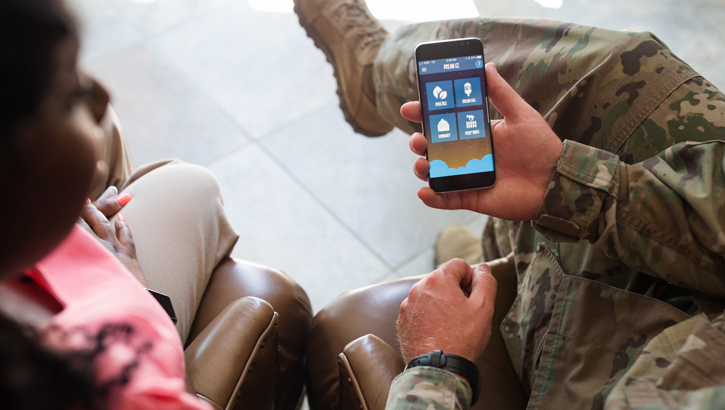
Learn how your smartphone can serve as a lifeline
Medical maintainers play key role in Army’s response to COVID-19
Article
5/22/2020
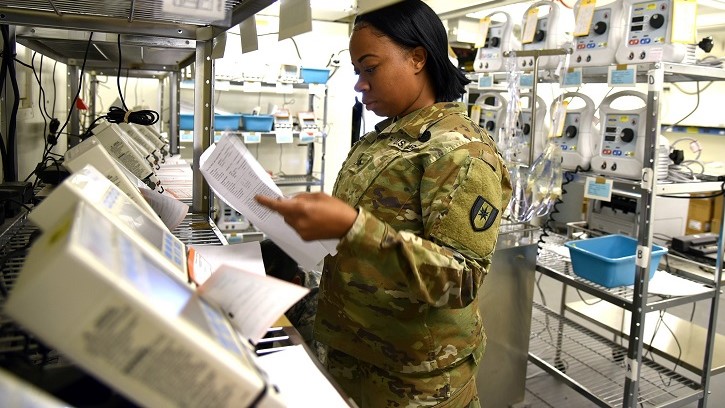
In the field, Soldiers trained as Biomedical Equipment Specialists, or 68As, handle unit-level sustainment of deployed medical devices.
COVID-19: lifestyle tips to stay healthy during the pandemic
Article
5/22/2020

With this unprecedented lifestyle shift, there is a potential for the normalization of a more sedentary lifestyle.
VENDOR UNSOLICITED PROPOSAL IN SUPPORT OF COVID-19
Form/Template
5/21/2020
Unsolicited Proposal Information Supporting COVID-19
NMHM opens ‘virtual doors’ to the public during COVID-19
Article
5/21/2020
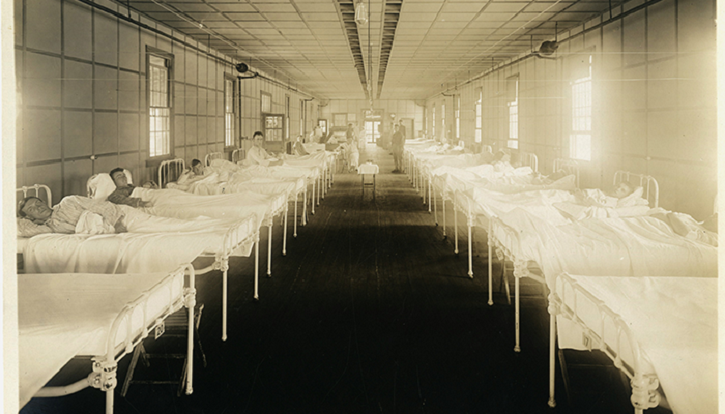
In the current climate of COVID-19 and stay-at-home orders, virtual environments have become an invaluable means of entertainment and education.
Air Force bioenvironmental engineers expand mission in aerovac, workspaces
Article
5/21/2020
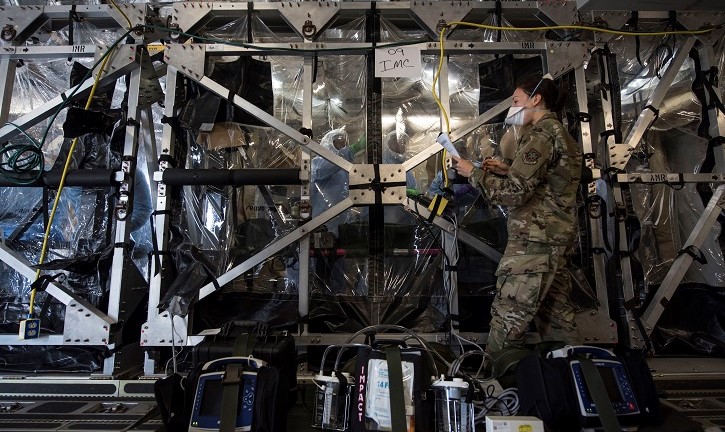
The aeromedical evacuation mission became a top priority as COVID-19 began to spread.
Guidance for Commanders on Risk-Based Changing of Health Protection Condition Levels During the Coronavirus Disease 2019 Pandemic
Publication
5/20/2020
This memorandum provides guidance for commanders to consider when making decisions to change health protection condition (HPCON) levels as COVID-19 pandemic conditions on and adjacent to our installations begin to improve.
NHB/NMRTC Bremerton’s PHEO leans in on COVID-19 pandemic
Article
5/20/2020
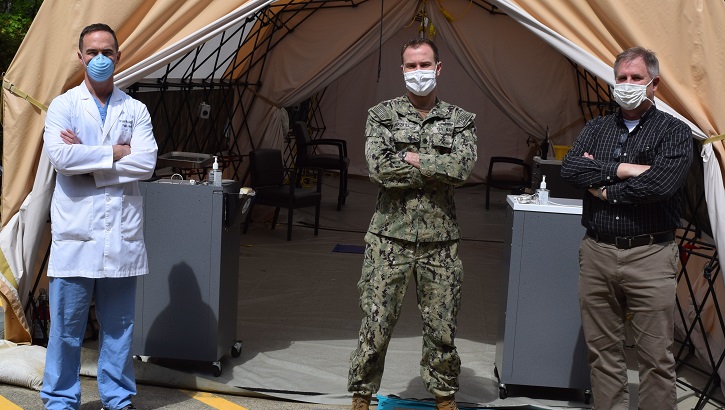
It’s been long days preparing for the unpredictable, limiting the unforeseen and controlling the unexpected.
Resuming Elective Surgical, Invasive, and Dental Procedures in Military Medical and Dental Treatment Facilities
Publication
5/19/2020
This memorandum provides guidance on how each Military Medical Treatment Facility (MTF) and Dental Treatment Facility (DTF) may resume elective medical and dental procedures.
Military chaplains emphasize spiritual health during COVID-19 pandemic
Article
5/19/2020
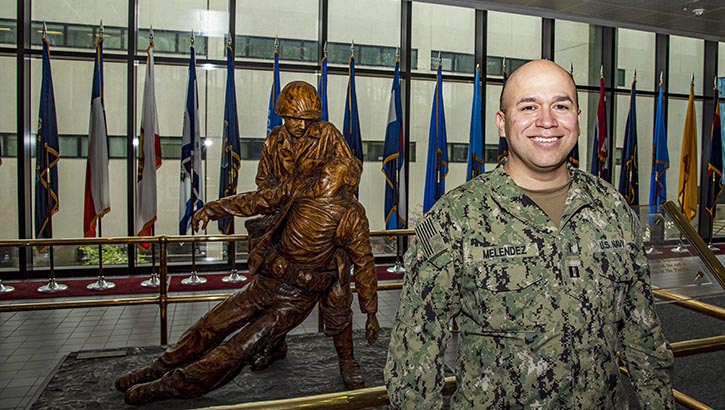
In a time of great fear, spiritual health remains an important domain of Total Force Fitness.
DHA increases access to telehealth during COVID-19 pandemic
Article
5/19/2020
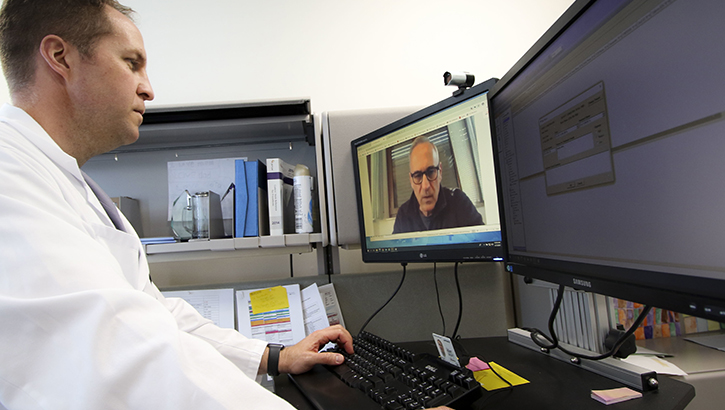
Use of telehealth role increases to prevent COVID-19 spread
RWBAHC Soldier Shows compassion, initiative in COVID-19 Screening
Article
5/18/2020
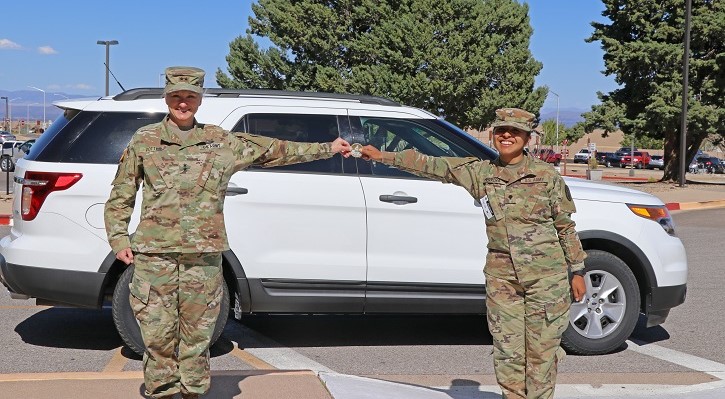
"This type of behavior needs to be highlighted and awarded because it is truly what makes this organization great."
Expert panel on infection control to tackle COVID-19 questions
Article
5/18/2020
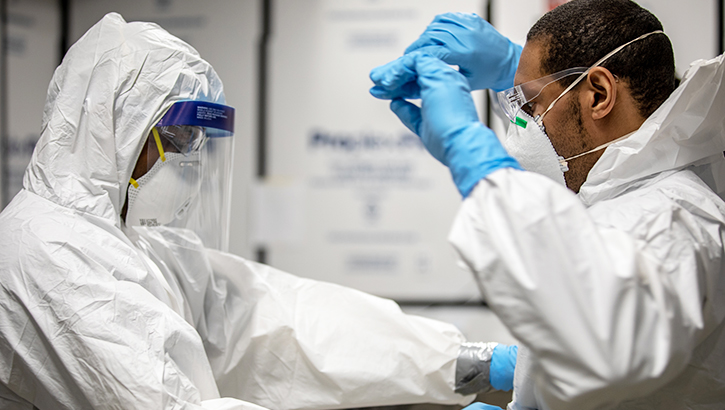
How are patient safety decisions made during the pandemic?
DoD COVID-19 Practice Management Guide Version 3
Technical Document
5/14/2020
This COVID-19 Practice Management Guide has been rapidly and thoughtfully developed by a multi-specialty group of 60 subject matter experts from across the Department of Defense Military Health System. The intent of this publication is to provide clinicians and military medical treatment facilities (MTFs) with best practices based on latest evidence to optimize DoD response to the current COVID-19 pandemic. This Practice Management Guideline consolidates resources and optimizes the management of patients requiring clinical care during the global COVID-19 pandemic.
BAMC infectious disease doc aids Guam's COVID response
Article
5/14/2020
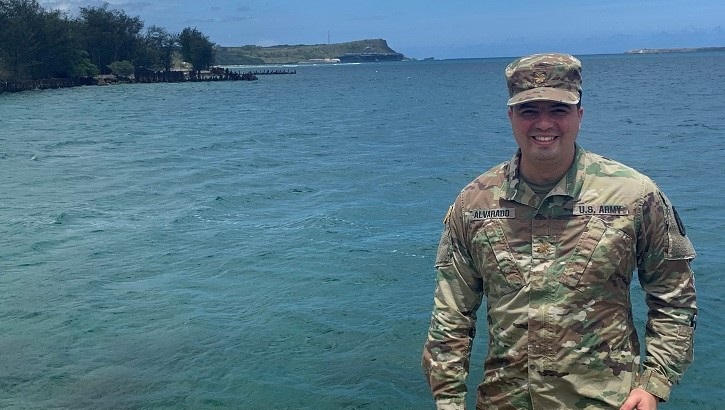
The Navy has since undertaken an aggressive mitigation plan of isolating, quarantining, and treating affected Sailors to keep the ship prepared to execute its mission.































No hay comentarios:
Publicar un comentario